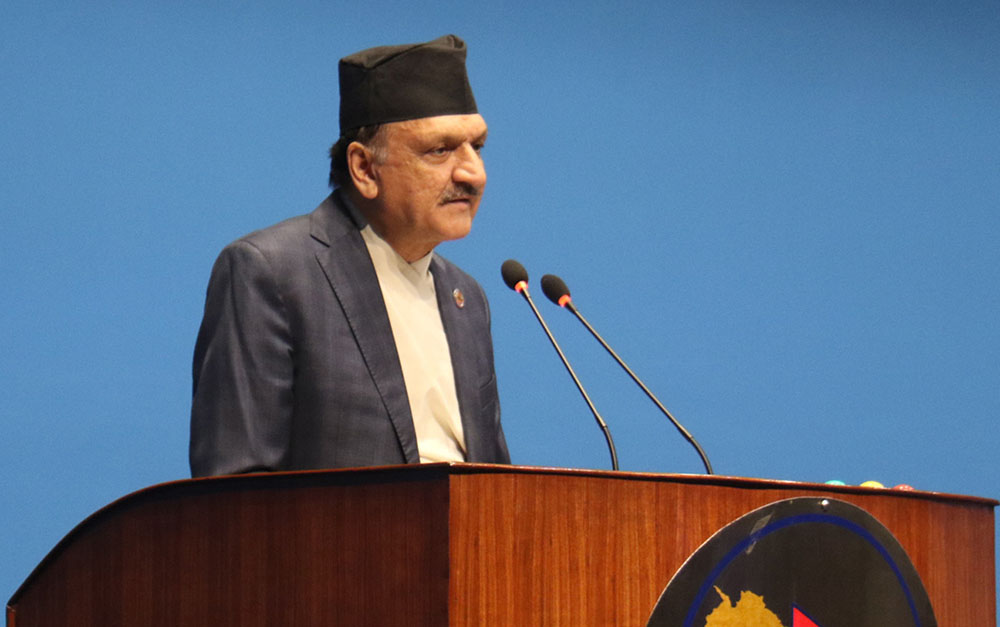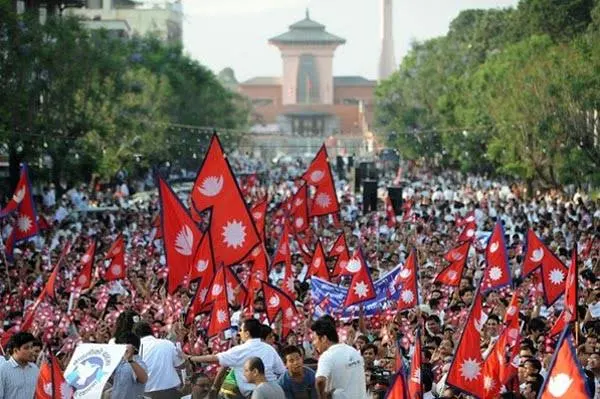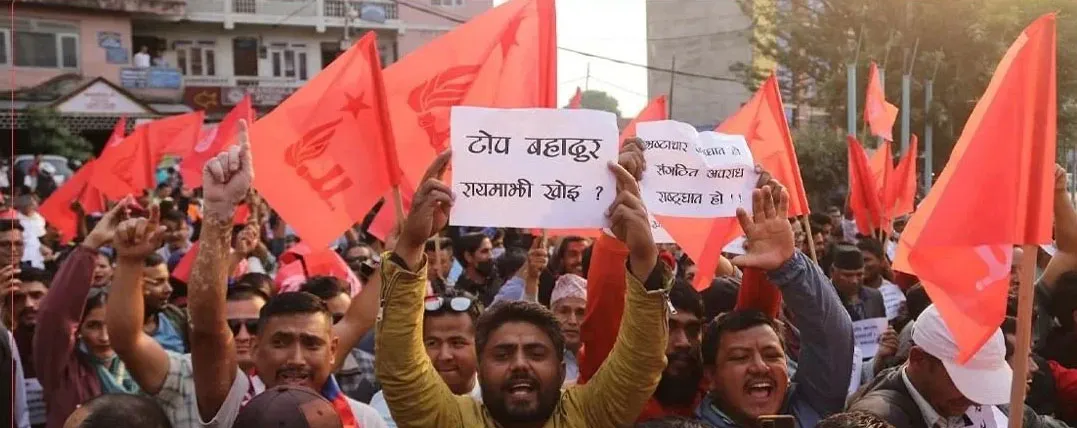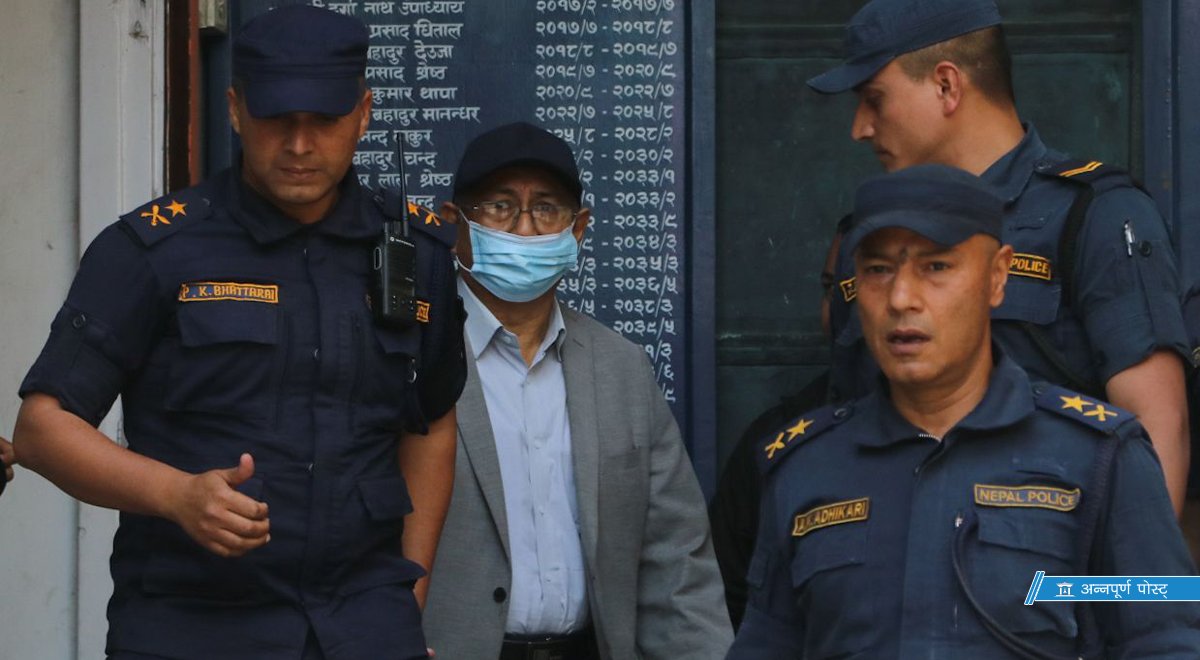Editorial: Health for all
The Constitution of Nepal 2015 has regarded the right to health as one of the fundamental rights of the Nepalis. Article 35 (1) of the constitution states that every citizen shall have the “right to free basic health services from the State, and no one shall be deprived of emergency health services”, Article 35 (3) stipulates every citizen’s equal access to health services whereas Article 35 (4) envisions access to clean drinking water and sanitation. These great legal provisions notwithstanding, the right to health remains on paper for most of the Nepalis. This daily has published a series of investigative reports detailing a sorry state of affairs at government hospitals. Whether it’s Civil Service Hospital, Bir Hospital or Maternity Hospital, all have been suffering from serious illnesses like the lack of human resources, cleanliness and other occupational safety and health measures, equipment, budget and infrastructure, to name a few. Despite such a state of affairs, these facilities are bursting at their seams, with service-seekers waiting in serpentine queues daily for treatment, not to mention thousands of others, who wait for months on end for surgeries. Apparently, these public health facilities, which form the backbone of a public health delivery system, pose a serious threat to public health, especially in the times of a pandemic. Who is mainly to blame for the ills plaguing the public health delivery system? Governments in deep slumber, over a prolonged period of time. Governments that come and go in this instability-plagued country in quick succession have no time and energy to treat these diseases. Why would they pull up their sleeves and dirty their hands anyway? After all, whenever the ruling elites or their kith and kin fall ill, they can avail themselves of medical treatment abroad, with the state always ready to foot their medical bill. Over the years, a number of VIPs and VVIPs have availed themselves of services available at state-of-the-art medical facilities abroad, while lakhs of commoners continue to wait for their turn at ill-managed health facilities, bearing with the pungent smell and other associated difficulties. Sadly, a large number of people cannot even make it to these medical facilities as people begging on our streets for medical treatment of their own or their near and dear ones show. The onus is on the government to take urgent measures to fix our health system and work toward health and well-being, not only of VVIPs and VIPs but also of the commoners.
Editorial: Royal treatment in a republic
The Nepali public seethes with anger whenever VIPs and VVIPs head abroad for medical treatment. Once again, public outrage manifested itself when the President of this federal secular democratic republic, Ram Chandra Paudel, went on a medical trip with an elaborate entourage despite claims from at least a section of the medical fraternity that treatment for his condition was available in the country itself. Lending credence to their version is the fact that facilities meant for VIPs and VVIPs have been gathering dust at Bir Hospital and Tribhuvan University Teaching Hospital. It is natural for the Nepalis, one of the most taxed and worst served peoples in South Asia, to react in such a manner because it is the tax slapped on them under various topics that goes into paying the medical bills of the ‘dignitaries’, of which there seems to be no dearth in this country. This fury makes sense also because the powers that be have started going abroad for medical treatment even in cases where treatment is available at home itself. The laity is aware that medical visits, in most of the cases, are but just a ruse meant to cover ‘important meetings’ in foreign capitals with controversial agendas. What’s more, government authorities almost always keep the ‘ills’ afflicting powerful people like the President under wraps, giving rise to speculations about the real motive behind their medical trips abroad. This daily has repeatedly brought to light the pitiable plight of the public health delivery system in Nepal with a main focus on government-run hospitals that see thousands of people making a beeline for treatment every day. Its reports have highlighted the problems plaguing these hospitals, such as the lack of medical professionals, lack of budget for infrastructure expansion and poor occupational safety and health standards. Given such a scenario, time has come for the ruling elite of the republic ‘geared toward’ socialism to focus more on the treatment of an ills-plagued public health delivery system and discourage the VIP and VVIPs’ tendency of seeking medical treatment abroad even for minor ills, for which treatment is available in Nepal. Leaders of the country, who are so much more in love with ‘socialism’, can even learn from highly efficient functional public health delivery systems in operation in capitalist countries without depleting the country’s foreign currency reserves to send experts on study tours abroad as resources are available online.
Editorial: Lion Palace’s federal challenges
The basic idea behind Nepal’s switch to federalism was to take the government to the people’s very doorsteps. But federalism also comes with bills attached, in terms of money and several other thorny issues. One can of course argue that decentralization can be a low-cost alternative to federalism in a medium-sized country like Nepal, making way for heated and (perhaps) never-ending discussions on the topic. But the country is unlikely to take a back-gear and hurtle toward decentralization, at least not in the immediate future. So, making federalism work will be the foremost challenge for our ruling elites. A feature of federalism is increased instances of conflict between different tiers of government. This of course does not mean the center has the license to ride roughshod against the will of local communities in their localities under the unitary system. Such a conflict can be over rights, responsibilities, natural resources and revenue sharing, among others. That feature is in full glare on the issue of waste management in the Kathmandu Valley, with the Kathmandu Metropolitan City refusing to collect waste from nerve centers of the federal government for a few days after Singha Durbar’s indifference toward its concerns. As if this row were not enough, Kakani rural municipality (Nuwakot district) and Dhuniveshi municipality (Dhading) have issued a 15-day ultimatum to concerned authorities to fulfill agreements reached earlier, warning that they won’t allow waste disposal at the landfill sites of Banchare Danda and Sisdole otherwise. Add to it increasing tensions in the province after the renaming of Province 1 as Koshi Province. In a province or other subordinate levels, different sections of populations can have different sets of interests, expectations and ambitions. Addressing all these concerns is not easy, to say the least. But the onus is on the center to maintain amity. As provincial and local governments grow more and more aware of the importance of local as well as inter-state resources like forests, mountains, rivers and streams for their survival and prosperity, instances of conflict between different tiers of government are likely to increase. But Singha Durbar (the Lion Palace) presiding over a young federal secular republic does not seem much aware of the challenges that lie ahead on the path of federalism. The Lion Palace should realize that the party time is long over. It should muster strength, show more compassion and govern rather than rule by learning lessons from the immediate neighborhood and beyond. After all, the onus is on this very place to make sure that things do not fall apart in a shaky republic.
Editorial: Waste no time
Garbage management is one among many sectors of national life that is directly linked with the right to health, one of the fundamental rights enshrined in the Constitution. Without an iota of doubt, it is the duty of the state to safeguard this and other fundamental rights. Without a doubt, this right is for both the people living at the sources of waste as well as those living close to waste disposal sites. But this right, like other fundamental rights, has remained largely on paper. Waste collection and disposal coming to a halt has ceased to be news despite its serious impact on public health, especially at a time when the threat of coronavirus and other health risks are lurking. Imagine, for example, the situation in the Kathmandu Valley, which is home to millions of people and produces 1, 200 tons of waste daily—15-20 percent of it is recyclable—when waste collection and disposal comes to a halt. Avoiding such a situation requires increased coordination and cooperation between different tiers of the government, including the federal government, Kathmandu Metropolitan City and the local government, communities living close to the disposal sites, political parties as well as security apparatuses. Without a seamless coordination and cooperation, waste management is bound to come to a halt, much to the detriment of a large population. Forget seamlessness in this crucial task, even working coordination and cooperation between the federal government and the KMC seems to be a far cry as a recent, much-publicized spat between Mayor Balen Shah and Singhadurbar shows. Citing indifference on the part of Singhadurbar toward concerns regarding waste management, Mayor Shah has made it loud and clear that KMC will not collect garbage from nerve centers of the state, namely Singhadurbar and the Presidential Palace, unless the center addresses KMC’s concerns. Singha Durbar, on its part, has deemed Shah’s move as irresponsible and reminded him of KMC’s responsibility. This episode has once again shown that garbage management is a multi-lane way requiring all sides to work together for an obstruction-free traffic movement. Apart from concerns of people at the source, people living around disposal sites also have their concerns related to public health and the environment. Addressing conflicting concerns may not be easy, but there’s no shortcut to this problem. More often than not, political parties have faced charges of politicizing issues surrounding garbage management for petty gains. The onus is on them to mend ways and raise genuine concerns of the public. Waste management in urban centers like the valley will require short-term, medium-term and long-term plans. The policy of reducing, reusing and recycling non-degradable waste may help mitigate the problem apart from the promotion of greener alternatives. For now, the onus is on the feuding parties to sit together and prevent the conflict from aggravating further, in the larger interest of the public.



















